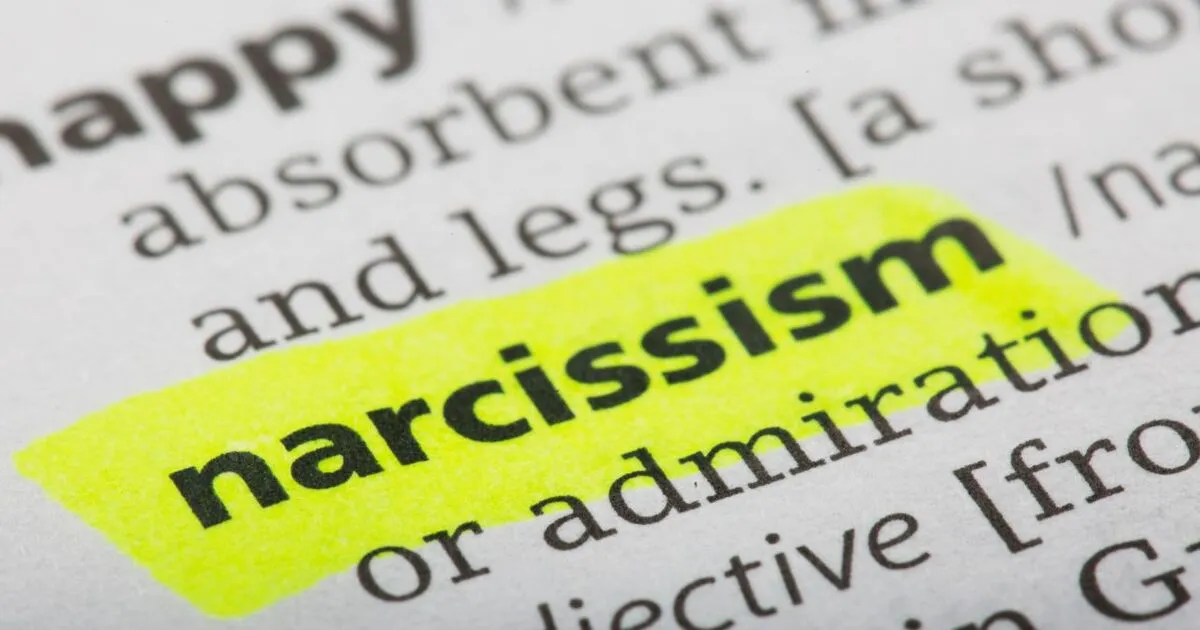Narcissists Playing the Victim: Causes, Symptoms, and Coping Strategies

Have you ever met someone who could be the star of their own drama and the victim of it, all at the same time? If so, you might be dealing with narcissists playing the victim, a perplexing behavior rooted in Narcissistic Personality Disorder (NPD).
The human psyche is a fascinating landscape, and within it, conditions like NPD stand out as some of the most intricate. They go beyond mere self-centered behavior, deeply affecting relationships and leaving an indelible mark on interactions. So, let’s dive in and unravel this complex interplay of victimhood and narcissism. Shall we?
Victim Mentality
On the flip side, there’s the Victim Mentality—another intriguing aspect of human behavior. It’s not uncommon for people to perceive themselves as victims, especially when their life situations don’t align with their expectations. But here’s the rub: when someone with NPD adopts a Victim Mentality, it creates a complex dynamic that’s both puzzling and damaging.
While we can all fall prey to feeling like life has dealt us a bad hand, the intertwining of narcissism and victimhood is like a toxic cocktail that no one asked for, but we often find served at the social gatherings of our lives.

Why Do Narcissistic Personalities Play the Victim?
In my years of research and contemplation, I’ve often marveled at the counterintuitive nature of narcissistic personalities who simultaneously exhibit victim behavior. It’s not merely a twist of fate or a casual whim; there’s a psychological architecture behind this. Let’s explore it.
Manipulation Tactics
I’m sure you’ve encountered individuals who could manipulate a situation or conversation so skillfully that it leaves you second-guessing your own reality. This isn’t mere cunning; it’s a well-crafted strategy. The manipulation tactics employed by those with narcissistic tendencies are often rooted in a deep-seated need for control.
Grandiose Sense of Self
When you examine a narcissist’s inflated self-image, it’s akin to a fortress built to shield their true vulnerabilities. Their grandiose sense of self serves as both armor and weapon. But what happens when this fortress starts to crumble? A victim mentality emerges as a strategic retreat.
Sense of Entitlement
What makes a person feel they deserve special treatment or unquestioned obedience? A heightened sense of entitlement often permeates the psyche of narcissists who play the victim. In their world, they’re the protagonists, and everyone else is either a supporting character or a villain obstructing their goals.
Denial and Low Insight
As a researcher and philosopher, I’ve found that the refusal to acknowledge one’s own imperfections is a universal human trait. However, in narcissists, this denial is amplified to an extreme degree, often coexisting with a surprisingly low level of self-insight.
Projection and Narcissistic Rage
Consider this: the narcissist’s anger isn’t just emotional turbulence; it’s a rage that stems from their own projections onto others. Could it be that the narcissist sees in you what they can’t admit exists within themselves?
Need for Control and Low Empathy
At the heart of the narcissistic personality’s victim play is a deep-seated need for control, often coupled with a surprising lack of empathy. They’re not merely actors on a stage; they’re directors manipulating every element to fit their narrative.
By understanding these multiple facets, we inch closer to the core of why narcissistic personalities don the cloak of victimhood. It’s a complex interplay of psychological needs and defense mechanisms, none of which operates in isolation.
“In a 14-day diary study, we found that narcissism, particularly its exploitiveness/entitlement dimension, was positively associated with the number and frequency of transgressions that respondents reported. This suggests that narcissistic individuals perceive themselves as the victims of others’ transgressions more frequently than do less narcissistic people.
The relationship between narcissism and victimization may result, at least in part, from biased recall or self-presentation. Understanding this exploitiveness/entitlement dimension is crucial for explaining why people with narcissistic tendencies report higher rates of interpersonal transgressions in their daily lives.”
— Michael E McCullough, University of Miami
The Relationship Between Narcissism and Victimhood
Watching people with narcissistic personality disorder start the transgression into victimhood is like watching two celestial bodies, each with its own gravitational pull, caught in an endless waltz across the night sky. As someone who delves deep into the intricacies of human behavior, I find this interplay not just intriguing but crucial to understanding a myriad of social dynamics.
The Veil of Narcissistic Abuse
When Victimhood Masks Abuse
It’s often like a magic trick—narcissists love to pull the victim card to divert attention from their own abusive behavior. They operate from a mindset where they’re the victim who’s been wronged by the world, and this perceived injustice then becomes the justification for their actions.
Mechanisms at Play
The Fragility Behind Narcissistic Injury
The Ephemeral Nature of Ego
An inflated ego is often as fragile as a soap bubble. Narcissistic injury, in essence, serves as a trigger that catapults a narcissist into a victim role. It’s a defense mechanism tailored to shield self-worth that is paradoxically self-devalued.
Reasons Behind the Role Reversal
The Endless Quest for Narcissistic Supply
The Need for Validation
Narcissists are always in search of something or someone to validate their grandiose self-image. When this narcissistic supply dries up, they often fill the void with a renewed sense of victimhood to get what they want.
How the Supply Dictates Behavior
The Self-Inflicted Narcissistic Wound
The Paradox of the Wound
While narcissists often consider themselves invincible, their wounds are self-inflicted yet blamed on external factors. When these wounds are poked, a heightened sense of victimhood surfaces as they employ ways to manipulate others into their narrative.
The Outcomes
.

How to Recognize Narcissists Playing the Victim
Recognizing a narcissist who is masquerading as a victim can be akin to solving a puzzle. The pieces often don’t fit neatly together, but when you examine them closely, the picture becomes clearer. Below are three critical aspects to help you understand this complex persona:
1. Narcissistic Behavior Patterns
2. Narcissistic Personality Traits
3. Narcissistic Character
By understanding these three critical aspects, you not only gain insights into the narcissistic mind but also equip yourself with the tools to navigate the labyrinthine maze of their emotional world.
Coping Strategies for Dealing with Narcissists Playing the Victim
Navigating the emotional terrain with a narcissist who assumes the victim role can be a daunting endeavor. The web they weave may seem impenetrable, but with the right strategies, you can maintain your balance. So, what are these strategies? Let’s explore.
1. Setting Boundaries
2. Avoiding Engagement
3. Seeking Support
4. Practicing Self-Care
As we journey through the complex landscape of human relationships, coping with a narcissist playing the victim may appear like a steep mountain to climb. But with the right gear—the right strategies—it’s a climb you’re well-equipped to make.
How to Help a Narcissist Who Plays the Victim
Navigating a relationship with someone who has narcissistic tendencies and yet loves to play the victim is a web of contradictions. It’s like trying to solve a Rubik’s Cube that keeps changing its colors.
So, how can you help someone so engrossed in their own grandeur that they also feel like a victim? Let’s examine this multi-faceted issue by exploring two impactful strategies: encouraging self-reflection and seeking professional help.
Encouraging Self-Reflection
The Need for the Mirror of Truth
Consider the concept of self-reflection as a neglected mirror gathering dust in a room. People with narcissistic tendencies often bypass this mirror because it shows not just their perceived brilliance but also their flaws and scars. I believe that guiding a narcissist toward this mirror could be a turning point. The question then arises: How do you help them confront their own reflection?
Strategies to Induce Self-Reflection
The Promise of Change
If a narcissist starts to question their own story, even if it’s just a crack in their armor, it’s a significant milestone. It offers an opening for deeper self-awareness and possibly a transformative journey ahead.
Seeking Professional Help
Why Expert Guidance is Crucial
While self-reflection is a step in the right direction, it can be like sailing without a compass in uncharted waters. You’ll need a seasoned navigator to steer clear of the inherent pitfalls and traps. That’s where professional help comes in.
Approaching the Subject
What to Expect
When a narcissist accepts professional guidance, it’s often a watershed moment. Proper therapeutic intervention can dismantle their tendency to feel like a victim, offering them a more authentic and healthier way to engage with the world.
In your journey to help a narcissist who loves to play the victim, remember that it’s a marathon, not a sprint. Patience, subtlety, and strategic action are your best allies. Are you ready to help rewrite a narrative that’s been years, if not decades, in the making? The first step starts with you.
Conclusion: Moving Forward with Awareness and Empowerment
As we navigate the final stretch of this transformative journey, it’s crucial to consider the actionable steps we can take to empower ourselves. The knowledge we’ve acquired about narcissism and victimhood isn’t merely for academic interest; it has real-world applications. So, the question stands: How can we translate this understanding into meaningful action?
Unearthing the Causes and Symptoms of Narcissism and Victimhood
Peeling back the layers of narcissism and victimhood reveals a complicated interplay of factors—upbringing, social context, and even personal choices—that contribute to the role of narcissism in an individual’s life. While genetics may play a role, it’s certainly not the sole determinant.
You’re likely to encounter various manifestations of narcissistic behavior, each unique and complex in its own right. The grandiosity that might be apparent in one individual may not be so overt in another. Yet, the underlying symptoms often remain the same: a blatant lack of empathy and an inflated sense of self. By understanding these nuances, we pave the way for effective diagnosis and intervention.
Crafting Coping Strategies for Interacting with Narcissists Who Assume the Victim Role
Setting boundaries isn’t just a psychological term; it’s a necessity for emotional well-being. Think of it as constructing a sanctuary where you can retreat and rejuvenate, away from the draining effects of narcissistic behavior. It’s not about cutting the narcissist out of your life, but rather about gaining power over your own emotional landscape.
As you put a stop to the emotional drain, don’t underestimate the importance of seeking support. Be it from friends, family, or professionals, a support network can be your emotional armor. Collective wisdom has the power to elevate your self-esteem and offer coping strategies that are both effective and empowering.
Guiding Narcissists Toward Professional Help and Self-Reflection
I think it’s crucial to acknowledge that narcissists, too, have the potential for change. Often, it takes just one moment of insight to shift the course of a life. But getting to that moment usually requires external intervention.
Encouraging narcissists toward self-reflection is not just a stopgap measure; it’s a pathway to a more fulfilling existence for them. Seeking professional help can serve as a catalyst for this self-reflection, offering them a mirror in which they might not only see their manipulative behaviors but also recognize the need for change.

